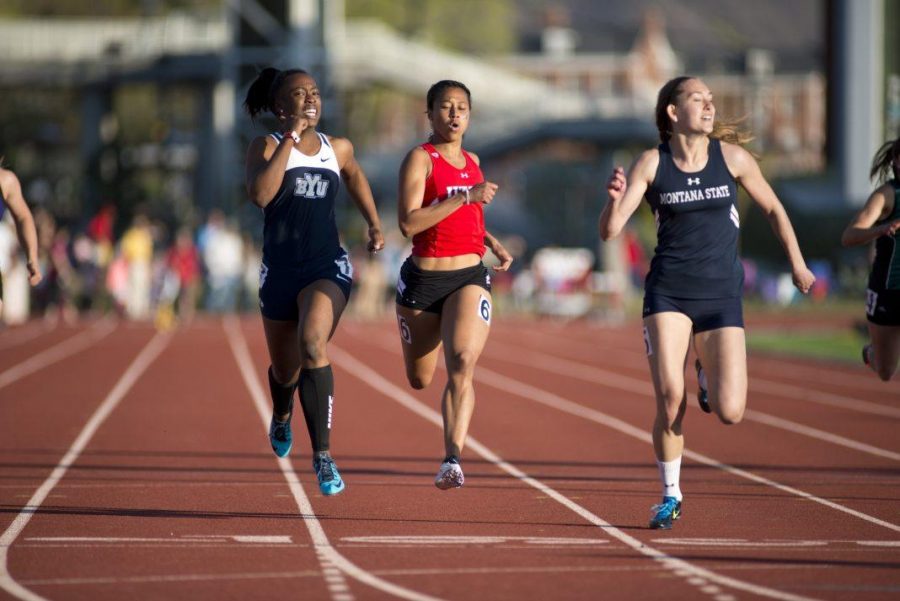Racial steoreotypes are all too prevalent in the sports world. Alissa Atisme, a senior on the University of Utah track and field team who is black, is aware of this.
The Utah native was raised just off of Hill Air Force base, an area of the state with high diversity levels. This was largely due to the base, which brings military personnel from all over the United States. Atisme attended a private school along with many other kids from military families.
“I grew up with a lot of diversity, so I never really thought about how I was the only … different person — because I wasn’t,” Atisme said. “I had a lot of friends at school who were from different ethnicities.”
Overall, Utah does not have much ethnic diversity. In fact, according to the U.S. Census Bureau, 78.8 percent of people in the state are white and not Hispanic, 13.8 percent are Hispanic or Latino and only 1.4 percent are solely black. Growing up in Utah, Atisme never thought of herself as an outcast, she was only concerned with being the best version of herself she could be.
That being said, racial biases still exist in all branches of society. One of the most prominent examples of these biases and stereotypes exist in the world of sports, both professional and recreational.
Atisme acknowledges the stereotype that exists in the track and field world, that race determines how fast or slow athletes move. She doesn’t take these assumptions to heart.
“I think it is cool because I am not the best runner in the Pac-12 and I get beat all the time by people who are … different from me, and I can also beat people who are different from me,” Atisme said. “You can’t go into a race seeing who you are up against and immediately think that you are going to win based on what they look like.”
What it should come down to is talent and nothing more.
Atisme’s mom, Liz Atisme, sees her daughter as an extremely hardworking, confident and independent young woman who has worked hard to get herself to where she is today.
“She doesn’t want to rely on other people,” Liz said. “Alissa wants to be able to prove to people that she can do things.”
Liz added that she did not raise Alissa or her siblings to see race. This idea, combined with growing up surrounded by different types of people, has molded Alissa into a self-driven and independent athlete.
Alissa has found success on the track, and she recently broke a Utah school record in the 60-meter dash with a time of 7.71. That success directly results from her internal drive and motivation. As a walk-on for the Utah track and field team, Atisme had to put in an extra amount of work to earn a scholarship.
“You can always tell how much of a scholarship someone is on based on how many shoes they got at the beginning of the year,” Alissa said. “I want[ed] to be one of those girls who gets three pairs of shoes.”
Alissa says she is motivated by more than just her desire to be the best athlete on the collegiate track. She also wants to excel in a career following graduation so she can remove some of the financial burden from her parents. She’ll do whatever it takes to achieve her goals, and she won’t let the color of her skin affect any of her hopes and dreams.
c.overfield@dailyutahchronicle.com
@caseyoverfield



